Winter, 267
595 men
The arrival of Pleminius has raised my spirits, although this is more because of the small reinforcement it provides than the conviviality of the fellow. He is an austere chap, not given to small talk. His pithy pronouncements of personal duty and honour are admirable, I suppose, but at my age, I find them hard to take. Does he not realise his job is not to die for his country, but rather to make the other fellows die for theirs? Still the man's sword arm is just as steely as his speech, so I welcome his presence. I have assigned my previous Military Tribune to Pleminius, so that the two can be accustomed to working together in the event that my heart should fail again. Overtime, I may assign more of my ancillaries to him, if he does not object, but for now, I need them under my control.
The Greeks came again. A tall red-cloaked Captain Diadumenus approached under a flag of truce. "I have come for the body of Theras" he solemnly declared, much in the manner of young Pleminius. Indeed, I saw Pleminius scrutinising the Spartan with scarcely concealed admiration. Of course, I gave the Captain Theras's coffin and told him his Prince had died well. The Captain thanked me but then said he could not leave until we have surrendered Apollonia. I shook my head, telling him to go back to his men and that the next time we met, one of us would fall.
Again I had no intention of letting an inferior force blockade us inside the town, so I marched the army out at night. The Captain pulled back his hoplites from the gate and at first, I thought he was going to exit the field without giving battle. A foolish thought. That is not the Spartan way.
Gingerly, I spread our men out into a U-shaped formation, hoping to work our skirmishers and cavalry around the flanks of the enemy hoplites.
As the Romans seek to envelope the Greeks, the hoplites advance in the centre.
I ordered our funditores to target the Spartans but they made little impression. Before the battle was half over, our slingers were out of lead and only two of the Spartans had been shot down. I knew the Spartan hoplites were our most dangerous foes and so ordered our own triarii to charge them. The two elite formations remained locked in combat for most of the battle.
The Spartans and the triarii face off together
By good fortune, we managed to surround and break one enemy phalanx on the right, so I ordered young Pleminus to hunt down the routers. The headstrong tribune pursued too impetuously and ran into another phalanx moving in support. He fought bravely, before my messenger reached him ordering him to pull out at once. If I should fall, whether in battle or due to infirmity, it is essential that Pleminius survive to take command.
Pleminius's pursuit of the routers nearly ends in disaster.
The critical phase of the battle was now reached. Our heavy infantry sought to encircle and defeat the phalanxes, while our skirmishers targeted the lightly armoured Spartans - although it must be said, not with any visibly greater success than the funditores had enjoyed.
The height of the battle. The Roman cavalry is kept out of the action until all the hoplites are committed.
When the time was right I signalled to Pleminius to charge the rear of one of the enemy phalanxes, while my escort brought up the rear in support. The shock of the charge was decisive, breaking the enemy's morale and causing a chain rout. Most of the Spartans already lay dead at the feet of the triarii but half a dozen fled. The lances of Pleminius's escort spared these individuals the indignity of returning to their city in disgrace.
This time, Pleminius's charge is unstoppable and decides the outcome of the battle.
After the battle, a shadowy figure approached me with a message from the First Consul. The enigmatic chap said that he had been assigned to watch over me and would accompany me with my escort from now on. I think I recall his thick rasping voice from my accident in the gardens. Somehow this heroic saviour makes me fear more for my life than the Greeks or my bad heart. But the news the agent brought from Verginius was most important.
Season 3.
573 men












 Reply With Quote
Reply With Quote














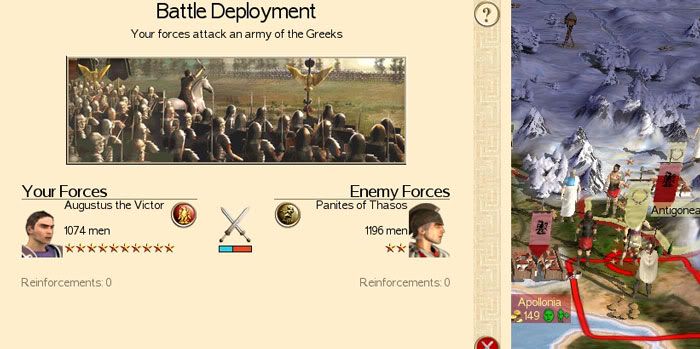
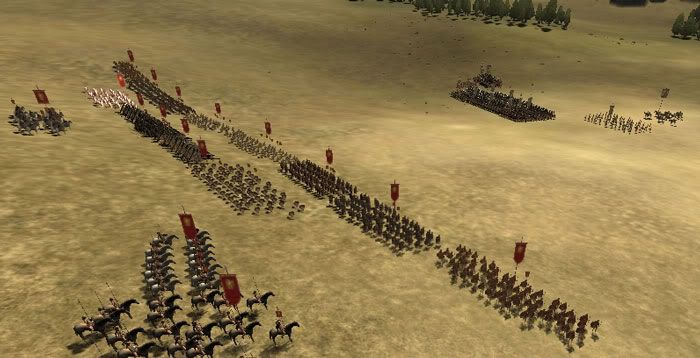
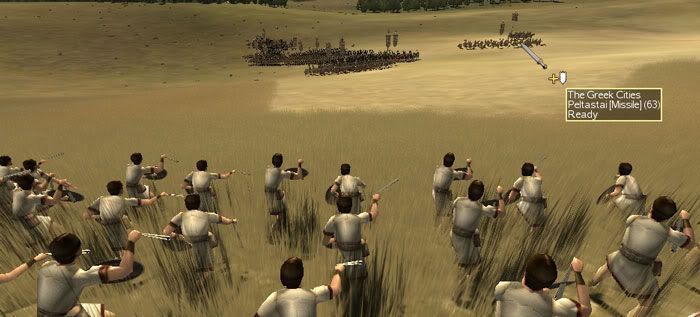
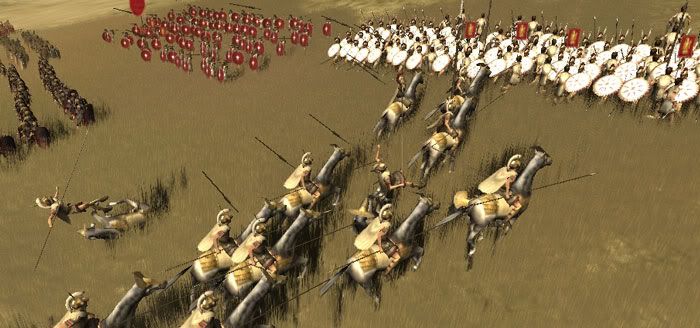
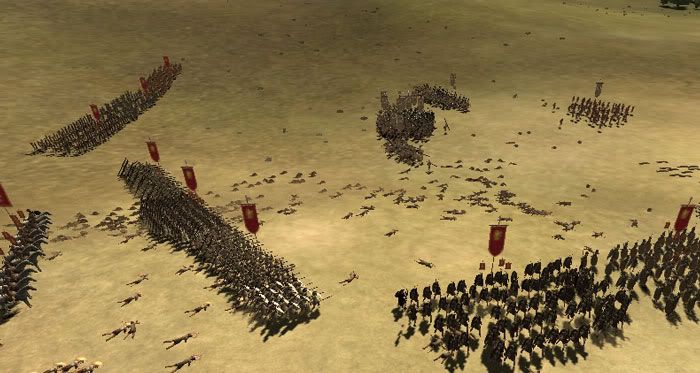
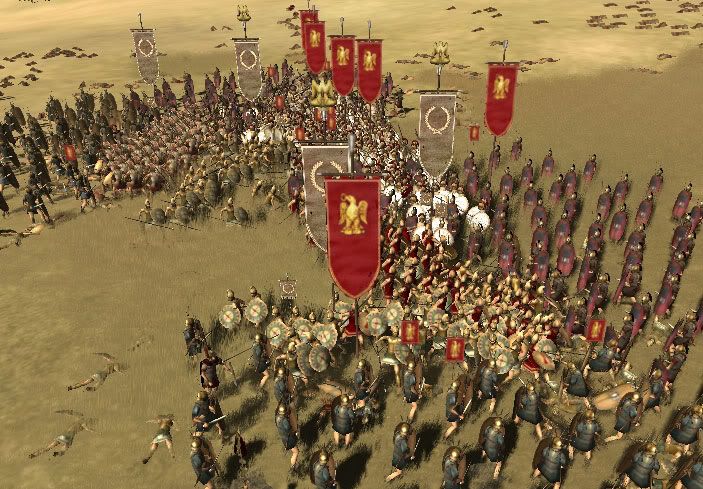
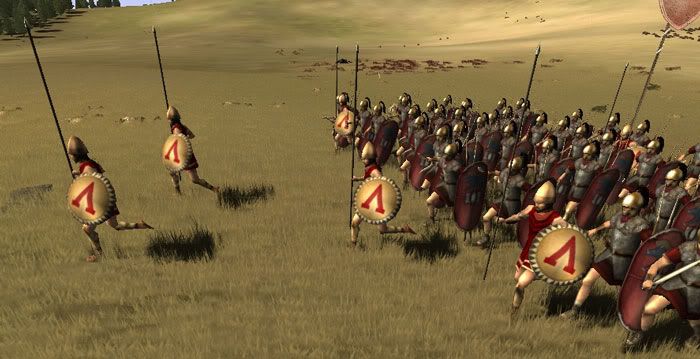
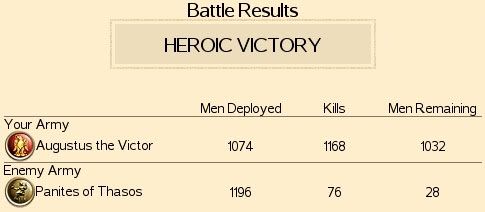
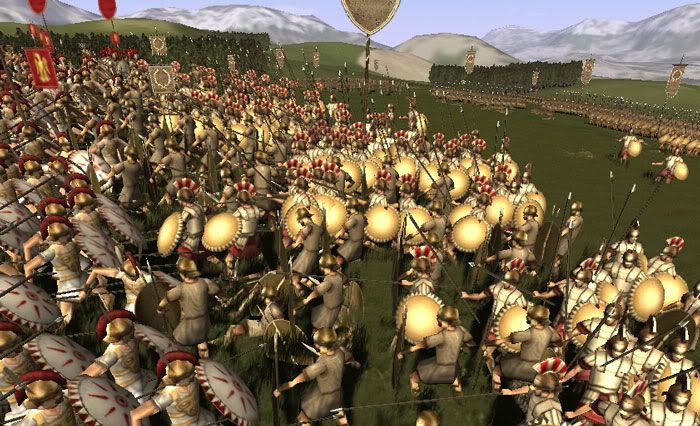
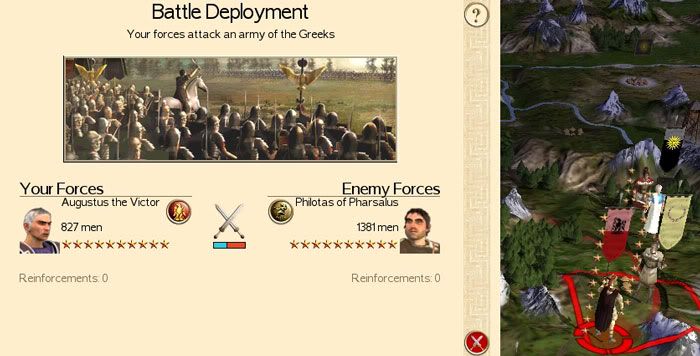
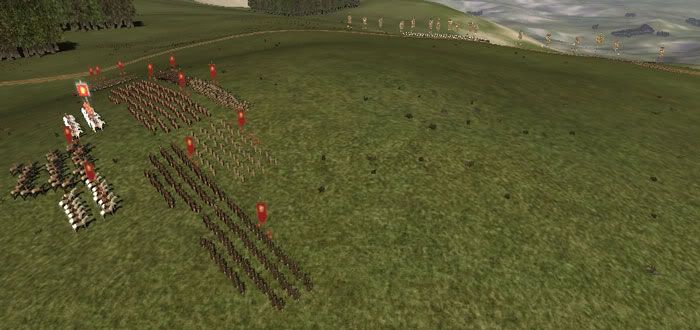
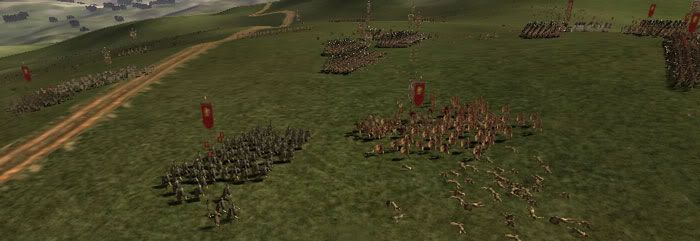
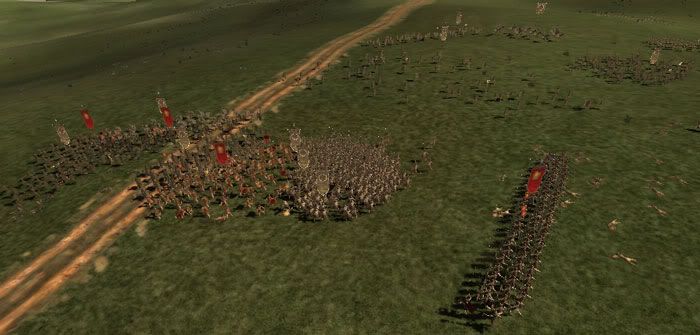
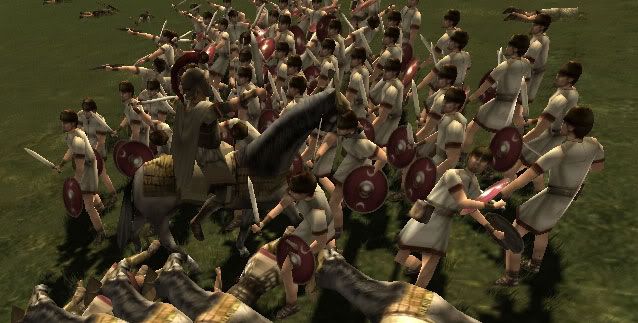
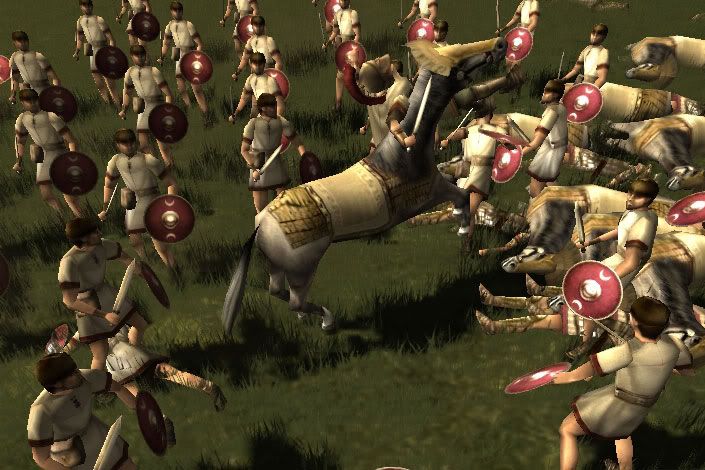
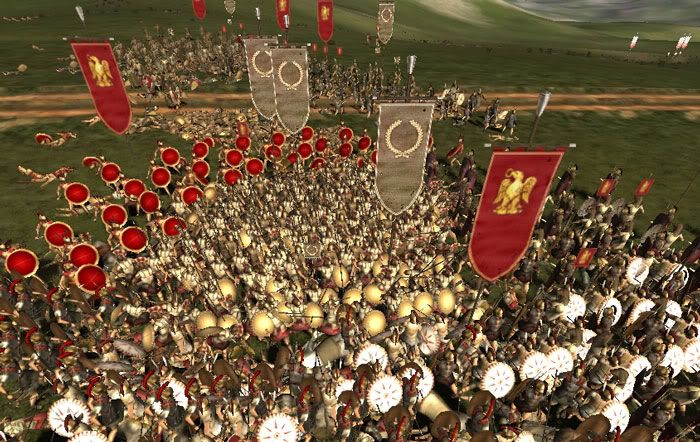
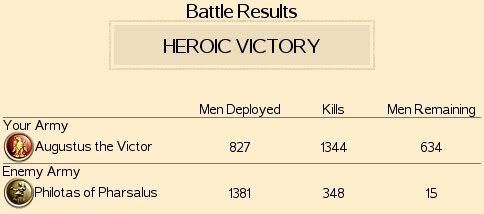
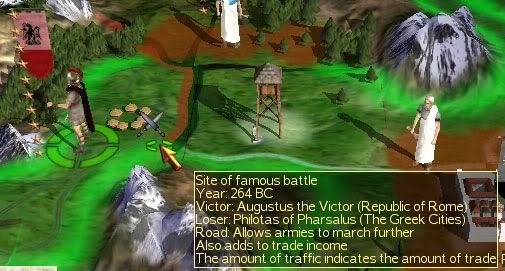
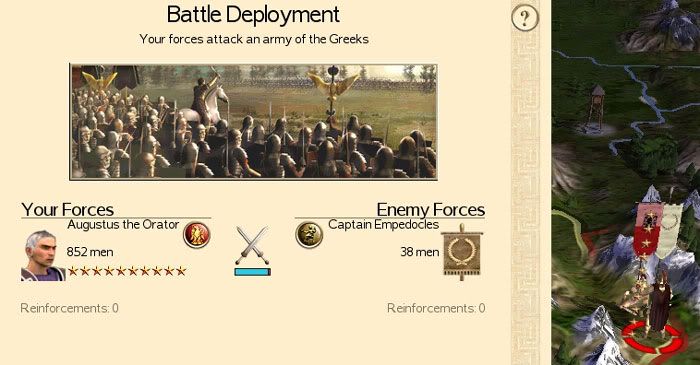
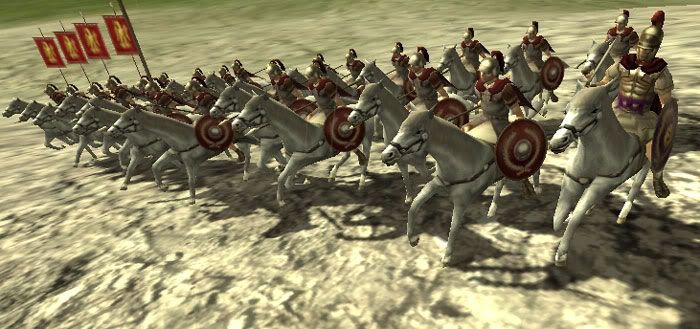
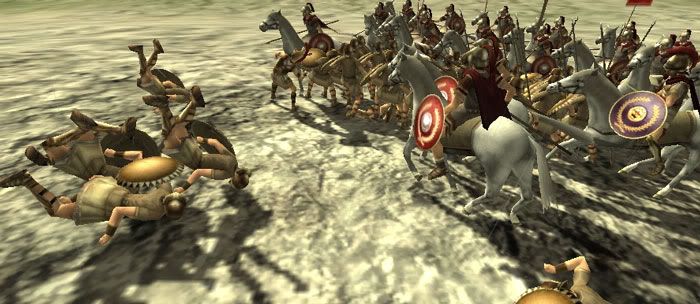
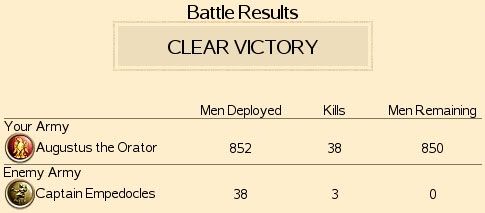





Bookmarks